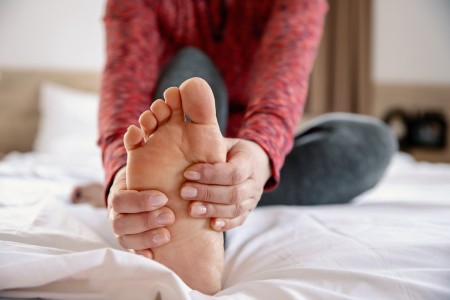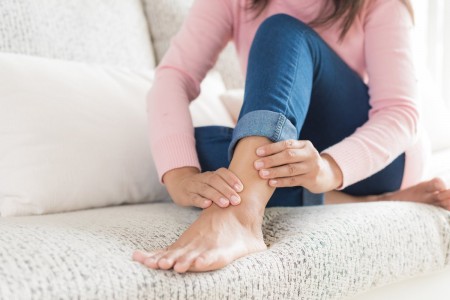
Advertisements
Back pain is, well, a pain. And for some people, it can even be debilitating.
Video of the Day
This type of pain is common, too, affecting 80 percent of people at some point in their lives, per the U.S. National Library of Medicine. According to the Mayo Clinic, certain factors can increase your risk of developing back discomfort, including:
- Age
- Lack of exercise
- Excess weight
- Mental health disorders like anxiety and depression
- Injury
And it doesn't take a significant injury to trigger a backache: "Back pain can be caused by traumatic events like a car accident, a fall, a sports-related injury or it can happen over time due to things like work, posture or a sedentary lifestyle," says Dallas Reynolds, PT, DPT, physical therapist and director of operations support for ATI Physical Therapy.
Fortunately, there are small things you can do every day to find back pain relief. Here, experts guide you through a weeks' worth of habits that may steer you toward better back health.
Can You Really Reduce Back Pain in a Week?
OK, so you may not be completely free of back pain in a week. But every day you can do one thing that may help ease your pain over time.
Advertisements
"It takes time to completely eliminate back pain. But with small steps, you can start to see improvements immediately," Reynolds says. "Becoming educated on how to sit, stand, lift and sleep properly can provide immediate improvements to your spine health."
Day 1: Get More Rest
Day one is all about rest, because sleep is essential to how your mind and body function.
"Make sure you are getting the appropriate amount of sleep," Reynolds says. "Lack of sleep contributes to increased pain levels."
Indeed, inadequate sleep is linked to increased pain, especially chronic pain, according to a December 2013 review in the Journal of Pain. This may be because not getting enough rest affects your body's ability to regulate pain.
And this isn't just the case if you pull an all-nighter — even partial sleep deprivation may make you more sensitive to pain, per the study.
That's why the first step to curbing your discomfort is to assess your sleep habits and explore ways to not just sleep more, but better.
Per the Mayo Clinic, some strategies to help you get better rest include:
- Aim to get at least seven hours of sleep a night.
- Maintain a consistent sleep schedule by waking up and going to bed at the same times.
- Avoid caffeine, nicotine and alcohol before bed.
- Optimize your bedroom for sleep by making sure it's dark, quiet and at a cool temperature.
- Limit daytime naps to no more than 30 minutes to avoid disrupting nighttime rest.






